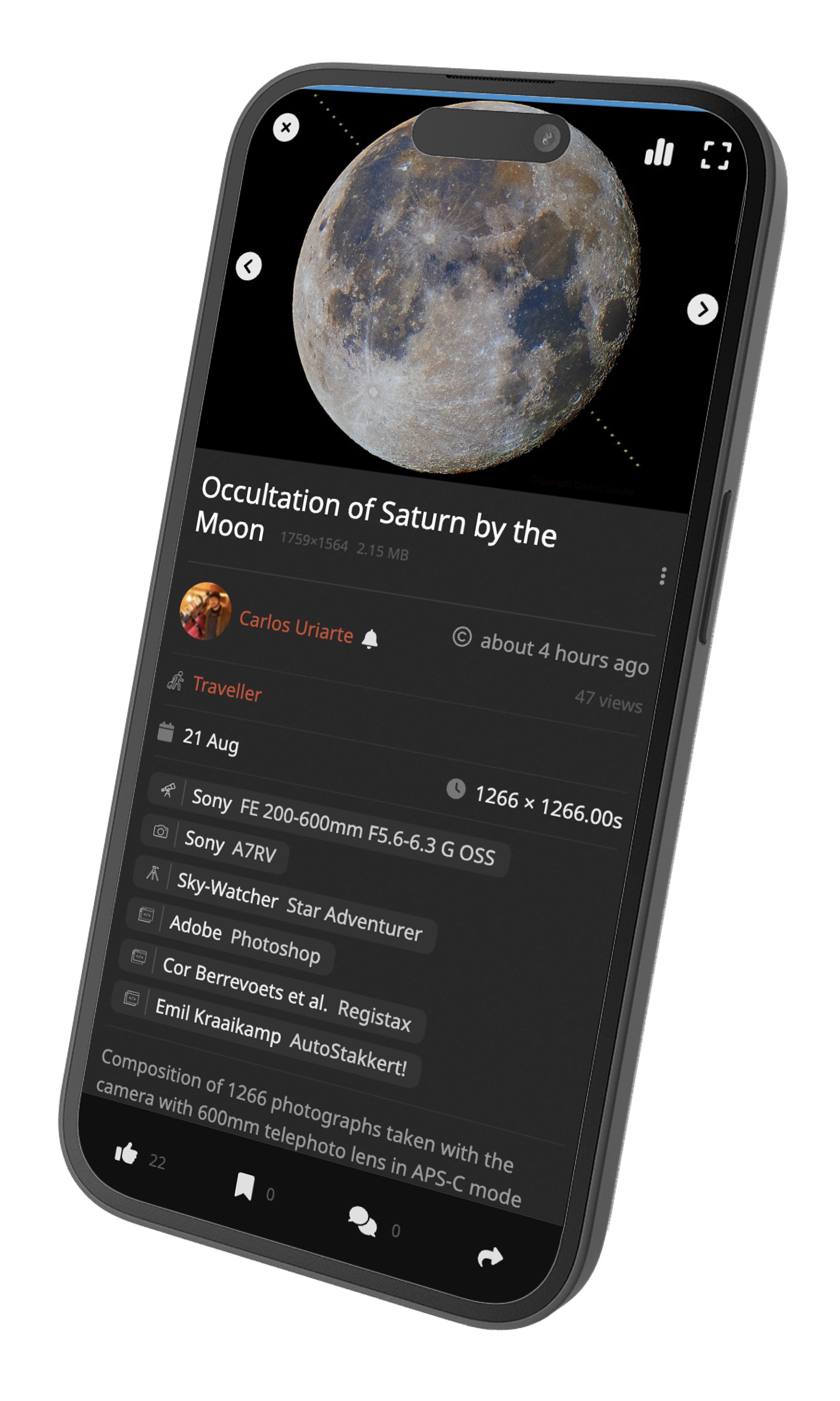Introducing the new AstroBin Search experience
I hope you all had a great summer! AstroBin's was super busy with cooking new amazing stuff for you! I'm excited to introduce the new AstroBin Search experience, which will begin rolling out over the next couple of weeks.
Search is a core feature of AstroBin, and the most used page of the entire website, and it was about time it got an overhaul. The changes introduce new amazing features and a fresh new design with focus on usability and looks,
New functionalities
You can now use quotation marks for exact searches, and the minus signs for exclusions! In the screenshot above, you're searching for all images that feature the word "andromeda" but not the word "zwo".
For many filters, including telescope types, camera types, celestial subjects, and more, you can specify multiple items and decide if you want to match ALL of them or ANY of them. In the screenshot above you're searching for all images acquired with a newton or an apochromatic refractor, and a film camera.
You can autocomplete a lot of things, which help you find better matches! This includes all equipment types (telescopes, cameras, mounts, filters, accessories, software), so you can find exactly the images you're looking for.
You can now save your searches with a name, and recall them later with just a couple of clicks. In the screenshot above I'm about to save a search for all images of M 31 by astrophotographers from Italy.
Finding images is a lot easier now, thanks to the autocomplete feature. Just type something, hit TAB for suggestions, or hit ENTER if you want AstroBin to perform an open-ended search
Design and usability improvements
It's easier to see all your active filters because they are shown in a compact form just below the address bar. In the screenshot above I'm searching for all images acquired in the month of August of this decade, in the constellation of Orion, from a backyard, an using a narrowband filter.
The new AstroBin Search page is better at finding relevant images, as it attempts to match your open ended query to a specific filter for better results.
Search results have infinite scrolling now instead of numbered pagination, so it's faster to continue looking at amazing images.
Images open in a brand new full size viewer with lots of improvement compared to the view you've used to. Let me try and list the most notable!
The view takes the entire available space, and is optimized both for very large screens and small mobile devices.
The image is in a fixed position so you can scroll the information without losing sight of the most important feature.
All the information has been organized in a way that is readable, compact, and sensible.
Complex information that might difficult to read for images with lots of acquisition dates and filters, have been organized in a clever way so that you only see the information you care about, and can click-thru to see more if you want.
You can close this view by clicking on the X button or hitting Escape on your keyboard, and you are back to your search results in the same scroll position.
You can use the left/right buttons (or left/right arrows on your keyboard) to navigate all search results, including those in pages that haven't been loaded yet.
You can enjoy browsing related images with infinite scrolling, and explore the 1,000,000+ AstroBin images and videos!
I know you want to pixel-peep, you know you want to pixel-peep, so go ahead and do it! With the new Zoom Lens you can see sunspots on Proxima Centauri!
Better mobile device support
And by the way, it works great on mobile phones too, with a responsive design that adapts to all device sizes and swipe gestures to navigate between images and close the image view!
The new features will roll-out over the next few weeks. If you have any trouble or spot any bugs, please report them using the contact form! You will be able to opt-out of the new Search experience in your preferences, for a while.
I hope you find this useful!
Salvatore








